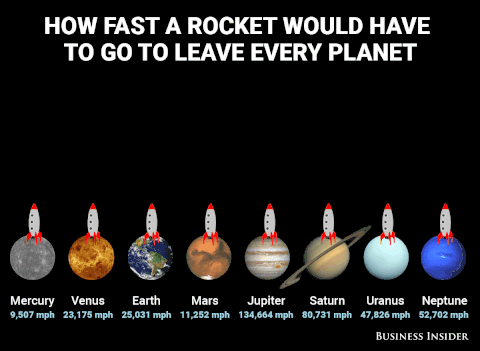The Orion Nebula

The Orion Nebula
via reddit
More Posts from Fillthevoid-with-space and Others

July 16th, 1969, 8:32 AM - Neil Armstrong, Michael Collins, and Edwin “Buzz” Aldrin Jr. lift off aboard Saturn V SA-506.
The Yutu rover suffered a mysterious “abnormality” over the weekend. And the robot’s microblogged death note may make you cry.
oh gosh!
It’s international dark sky week! Please enjoy this great Bortle scale.
skyglowproject What sky do you live under? Learn more at SKYGLOWPROJECT.COM

Light Echoes Used to Study Protoplanetary Disks : This illustration shows a star surrounded by a protoplanetary disk. A new study uses data from NASAs Spitzer Space Telescope and four ground-based telescopes to determine the distance from a star to the inner rim of its surrounding protoplanetary disk. Researchers used a method called photo-reverberation, also known as light echoes.
js










Cassini prepares for final orbital “Grand Finale” at Saturn.
Erik Wernquist, the same filmmaker who created 2014’s “Wanderers” and a stunning New Horizons promotional film in 2015, has created a new video highlighting NASA’s Cassini mission’s final days at Saturn. The Cassini spacecraft will begin its final series of orbits to cap a 13-year groundbreaking science mission known as the Grand Finale. For the first time ever in Cassini’s time at Saturn, the spacecraft will fly in between the planet’s rings and atmosphere. No spacecraft has ever before flown in this region of any of the solar system’s ringed planets. After 20 orbits, Cassini will dive into Saturn’s upper atmosphere September 15 where it will be destroyed. In 2008, mission managers explored a range of End of Mission scenarios that would protect Saturn’s moon’s from Earthly contaminants before ultimately deciding on atmospheric reentry. Cassini began her End of Mission manoeuvres on November 26, 2016, when it began the first of 20 ring-grazing orbits. A close flyby of Titan April 22 will alter the spacecraft’s trajectory to begin the first of 23 orbits in the Grand Finale, which will begin April 26.

Cassini launched from Earth on October 20, 1997, and entered Saturn orbit July 1, 2004. 16 days later, the European-built Huygens probe attached to the spacecraft landed on Titan, becoming the first probe to land in the outer solar system. Originally scheduled for a four-year mission ending in 2008, Cassini received two mission extensions in 2008 and 2010, with the latter ending in 2017. With the spacecraft’s fuel reserves low, the Cassini team decided to end the mission. P/C: JPL/Erik Wernquist
It’s way too late for this, but it’s important to note that NASA didn’t discover the new earth-like planets. It was a group of astronomers lead by a dude name Michaël Gillon from the University of Liège in Belgium. Giving NASA credit for this gives the United States credit for something they didn’t do, and we already have a problem with making things about ourselves so. just like…be mindful. I’d be pissed if I discovered a small solar system and credit was wrongfully given to someone else.
Gretchen: On the International Space Station, you have astronauts from the US and from other English speaking countries and you have cosmonauts from Russia. And obviously it’s very important to get your communication right if you’re on a tiny metal box circling the Earth or going somewhere. You don’t want to have a miscommunication there because you could end up floating in space in the wrong way. And so one of the things that they do on the ISS – so first of all every astronaut and cosmonaut needs to be bilingual in English and Russian because those are the languages of space. Lauren: Yep. Wait, the language of space are English and Russian? I’m sorry, I just said ‘yep’ and I didn’t really think about it, so that’s a fact is it? Gretchen: I mean, pretty much, yeah, if you go on astronaut training recruitment forums, which I have gone on to research this episode… Lauren: You’re got to have a backup job, Gretchen. Gretchen: I don’t think I’m going to become an astronaut, but I would like to do astronaut linguistics. And one of the things these forums say, is, you need to know stuff about math and engineering and, like, how to fly planes and so on. But they also say, you either have to arrive knowing English and Russian or they put you through an intensive language training course. But then when they’re up in space, one of the things that they do is have the English native speakers speak Russian and the Russian speakers speak English. Because the idea is, if you speak your native language, maybe you’re speaking too fast or maybe you’re not sure if the other person’s really understanding you. Whereas if you both speak the language you’re not as fluent in, then you arrive at a level where where people can be sure that the other person’s understanding. And by now, there’s kind of this hybrid English-Russian language that’s developed. Not a full-fledged language but kind of a- Lauren: Space Creole! Gretchen: Yeah, a Space Pidgin that the astronauts use to speak with each other! I don’t know if anyone’s written a grammar of it, but I really want to see a grammar of Space Pidgin.
Excerpt from Episode 1 of Lingthusiasm: Speaking a single language won’t bring about world peace. Listen to the full episode, read the transcript, or check out the show notes. (via lingthusiasm)
-
 that-one-chaotic-person reblogged this · 8 years ago
that-one-chaotic-person reblogged this · 8 years ago -
 that-one-chaotic-person liked this · 8 years ago
that-one-chaotic-person liked this · 8 years ago -
 fluseicsspacechaos reblogged this · 8 years ago
fluseicsspacechaos reblogged this · 8 years ago -
 dsnoopyzi-blog liked this · 8 years ago
dsnoopyzi-blog liked this · 8 years ago -
 caedsblog reblogged this · 8 years ago
caedsblog reblogged this · 8 years ago -
 optimisticmisanthropist-blog reblogged this · 8 years ago
optimisticmisanthropist-blog reblogged this · 8 years ago -
 beehawbaby reblogged this · 8 years ago
beehawbaby reblogged this · 8 years ago -
 huppasaurus-rex reblogged this · 8 years ago
huppasaurus-rex reblogged this · 8 years ago -
 lilys-hobbies reblogged this · 8 years ago
lilys-hobbies reblogged this · 8 years ago -
 gabrielcalebh reblogged this · 8 years ago
gabrielcalebh reblogged this · 8 years ago -
 gabrielcalebh liked this · 8 years ago
gabrielcalebh liked this · 8 years ago -
 thequeenruby reblogged this · 8 years ago
thequeenruby reblogged this · 8 years ago -
 iamadolphin liked this · 8 years ago
iamadolphin liked this · 8 years ago -
 throw-yourself-at-the-ground reblogged this · 8 years ago
throw-yourself-at-the-ground reblogged this · 8 years ago -
 throw-yourself-at-the-ground liked this · 8 years ago
throw-yourself-at-the-ground liked this · 8 years ago -
 pierojubiengmailcom reblogged this · 8 years ago
pierojubiengmailcom reblogged this · 8 years ago -
 lasasukeuchanha-blog liked this · 8 years ago
lasasukeuchanha-blog liked this · 8 years ago -
 29082016emolove-blog liked this · 8 years ago
29082016emolove-blog liked this · 8 years ago -
 kosezx reblogged this · 8 years ago
kosezx reblogged this · 8 years ago -
 infinitycakecup-blog liked this · 8 years ago
infinitycakecup-blog liked this · 8 years ago -
 death-and-cats reblogged this · 8 years ago
death-and-cats reblogged this · 8 years ago -
 chitranid-blog liked this · 8 years ago
chitranid-blog liked this · 8 years ago -
 spacewakerone reblogged this · 8 years ago
spacewakerone reblogged this · 8 years ago -
 lunadaundertalefan-blog reblogged this · 8 years ago
lunadaundertalefan-blog reblogged this · 8 years ago -
 lunadaundertalefan-blog liked this · 8 years ago
lunadaundertalefan-blog liked this · 8 years ago -
 screamingbeehive liked this · 8 years ago
screamingbeehive liked this · 8 years ago -
 fillthevoid-with-space reblogged this · 8 years ago
fillthevoid-with-space reblogged this · 8 years ago -
 lerapodberezkina-blog liked this · 8 years ago
lerapodberezkina-blog liked this · 8 years ago -
 starrgloww liked this · 8 years ago
starrgloww liked this · 8 years ago -
 emmathilde983-blog liked this · 8 years ago
emmathilde983-blog liked this · 8 years ago -
 balzabul liked this · 8 years ago
balzabul liked this · 8 years ago -
 qclod reblogged this · 8 years ago
qclod reblogged this · 8 years ago -
 prolific-world-blog liked this · 8 years ago
prolific-world-blog liked this · 8 years ago -
 friedpeachcollectionlove-blog liked this · 8 years ago
friedpeachcollectionlove-blog liked this · 8 years ago -
 neverendingsmilesai-blog liked this · 8 years ago
neverendingsmilesai-blog liked this · 8 years ago -
 its-iamwonderful-blog liked this · 8 years ago
its-iamwonderful-blog liked this · 8 years ago -
 sebastianmiranda-blog1 liked this · 8 years ago
sebastianmiranda-blog1 liked this · 8 years ago -
 uniquefiredestiny-blog reblogged this · 8 years ago
uniquefiredestiny-blog reblogged this · 8 years ago -
 kiddopunk liked this · 8 years ago
kiddopunk liked this · 8 years ago -
 unlikelysweetstrash-blog liked this · 8 years ago
unlikelysweetstrash-blog liked this · 8 years ago -
 mysticangelcollector-blog liked this · 8 years ago
mysticangelcollector-blog liked this · 8 years ago
A podcast project to fill the space in my heart and my time that used to be filled with academic research. In 2018, that space gets filled with... MORE SPACE! Cheerfully researched, painstakingly edited, informal as hell, definitely worth everyone's time.
243 posts





